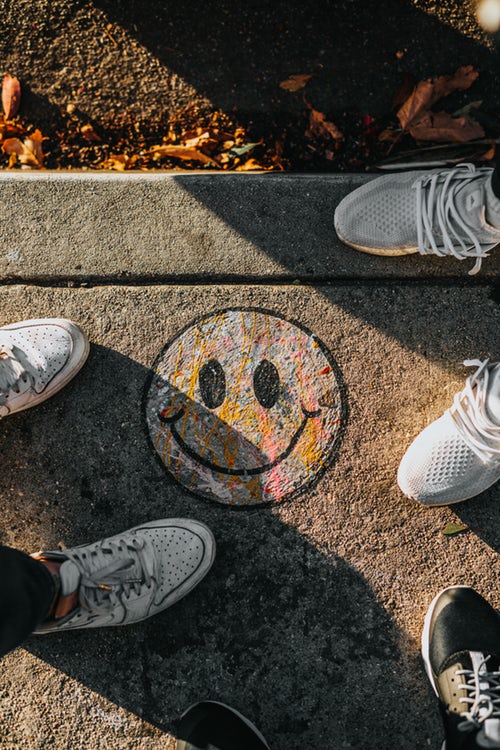Are some people just naturally grateful, or did their parents teach them to have gratitude? Does gender play any role in gratitude? What about personality, cognitive, or psychological traits?
It turns out that you can answer yes, yes, yes and yes! to all of these possibilities.
Let me show you why.
Determiners of your gratitude—
Psychologists are looking into what determines whether or not a person demonstrates gratefulness. They’ve wondered whether it is personality, cognitive or gender. First, we’ll explore their findings in personality factors.
Personality and gratitude—
Scientists have wondered if gratitude could be considered its own personality trait. Can it be added to the Big 5 traits Saucier and Goldberg categorized in 1998?
- Agreeableness
- Conscientiousness
- Extraversion
- Neuroticism
- Openness
The findings are inconclusive. While it is clear some people are more grateful than others, the researchers still debate whether gratitude, or gratefulness, can actually be classified as a bona fide personality trait.
So then they turn to:
Cognitive factors—
This area is where the research yields more conclusive data. According to a Greater Good Science Center whitepaper on the subject:
“The ways that we think about a giver can increase or decrease the likelihood we will feel gratitude in a certain situation. In particular, studies have found that how participants see the intention of a benefactor, the cost to the benefactor, and the value of the benefit are all independently and significantly associated with the level of gratitude reported by these participants.”
In other words: the higher the perception of gift-giver benevolence—the genuineness behind the giving—the greater the recipient’s gratitude toward the giver, and with the gift.
Free will or predestination?
And interestingly enough, people who believe in free will (rather than pre-destined) or those who have been primed to feel more free will exists, believe a giver is more sincere in his actions.
This finding has been supported with neuroimaging studies of the brain area associated with reward. In a bullet point nutshell:
A benefactor’s intention or motivation influences a recipient’s gratitude experience!
In yet another interesting research result, though
“People had to believe they were responsible for their own success at something [like a test result] in order to feel gratitude for the help they received.”
Other results show—
Gratitude levels were affected by comparisons of a giver or gift to other favors or gifts given by others. Kind of like a gift comparison scale.
Unexpected favors and gifts resulted in higher gratitude levels.
Yet a recent study indicated that
“Gratitude was more related to the value of the benefit received rather than to the participant’s expectations of generosity from people more or less close to them.”
Evidently people are prone to comparing gifts, weighing the differences between them, and assessing the giver. It all starts getting more complex than imagined, but who among us hasn’t experienced some of these thoughts:
- Thinking the gift giver was just trying to get on our good side or schmooze us.
- Comparing—before you even had a chance to shut down the ungenerous, skeptical thought—a gift someone gives you to a gift the person gave someone else.
- Not feeling particularly grateful for a gift because the gift didn’t hold much value for or to you, even though the giver thought his gift was stupendous and thoughtful.
- Feeling overwhelmed with gratitude for a gift you know the giver thought carefully about and bought, even though you knew it was costly to them.
And then there’s the gender factor in gratefulness—
Studies point to children and adolescent girls being more grateful.
Adult women appear to be grateful than adult men. And women tend to be more grateful to God than men.
In 20009, researchers Kashdan, Mishra, Breen, and Froh found that
“Men were less likely to feel and express gratitude, made more critical evaluations of gratitude, and derived fewer benefits.”
Could it be that men associate gratitude with weakness? That’s a question researchers are still pondering.
Or could it be the culture in which the men are raised?
Research indicates that’s a possibility.
In experiments, men from Germany have been found to be significantly more grateful than American males. And the German men were also more likely to see gratitude as a positive.
Do American men see gratitude as a sign of weakness?
Individual barriers to gratitude—
“Yes” the research shows. Personality and individual factors do appear to play a role. There are certain personality traits that negatively affect gratitude. They include:
Materialism, and
Envy (coveting)
“High materialists are less happy in part because they find it harder to be grateful for what they have.”
Cynicism
Scripture has some things to say about a cynical attitude (it’s not positive), but something else to be considered here is the iGeneration—also known as Generation Z, Post-Millenials, Founders, Plurals or Homeland Generation—has some significant, disturving characteristics. They tend to be:
- Very cynical and less trusting
- Have the highest IQ of any other measured generation
- Have the highest rates of suicide, which is one of the leading causes of death for teens and young adults
Do all of these factors—cynical nature, high intellect, and mental illness (and a sense of hopelessness)—prime these young people to have less gratitude toward life, gifts, people, nature? And God.
What are we older adults demonstrating for them and teaching them through our words, actions and way we live our lives? Through television programming and movies? The way we, ourselves, use and get addicted to technology and social sites that do little or nothing to improve our lives, or only make us feel more disconnected and lonely.
I think we have a serious problem that needs immediate attention.
Narcissism and gratitude—
Ever give a narcissist a gift? What kind of response did you get? Flat? Disinterest? Not much of an acknowledgement or thank you?
Researchers wonder if narcissists might not even notice a gift has been given to them. Why? Because they believe they’re entitled to the gift.
Sometimes it seems as though there are a lot of narcissists around these days too.
Are we raising and conditioning a generation and nation of narcissists because of all the “you deserve it” rhetoric the last 40 years? Madison Avenue marketers have made a bundle pitching us that line, and we become envious and frustrated and sometimes depressed when we can’t have it or don’t get it. We overspend to have it, sink ourselves into financial quagmires by buying into their advertising lines.
And politicians get in on the you-deserve-it game too. Pay careful attention to what they say and how they feed into narcissistic tendencies.
How are we allowing others to affect our gratitude?
The headwinds/tailwinds (barriers vs. benefits) factors—
Ever have something go really wrong in life? How do you compare it to the times when things were really going right?
Turns out that the headwinds (things are going badly) events get far more attention and weight in our lives and thinking than do the tailwinds (things are going great) events.
We tend to focus more on the barriers we face than on the benefits we enjoy.
Barriers versus benefits.
What do you focus most on?
Some of the funnier, and really revealing, examples researchers cited are:
- “Democrats and Republicans believe the electoral map works against them.
- “Football fans take more notice of the challenging games on their team’s schedule than on a rival team’s schedule.
- “People more frequently recall episodes when they thought a sibling was treated better than when they themselves were treated better.”
And you?
How would you measure yourself on these scales and with these factors?
Do you have friends or family members that could be poster children for any of these factors?
Do these results cause you to pause and take stock of your own gratitude, and the gratitude you’ve received (or haven’t received) from others?
Does it deepen your understanding and appreciating of gratitude?
As we move toward Thanksgiving, when gratefulness is really on our mind, start thinking about how tailwinds and headwinds in life affect your thinking and gratitude. Could you turn your tailwinds around to view them in a more positive light?
How can you raise your gratitude quotient?
NEXT WEEK we’ll look at social and cultural factors linked to gratitude—like religion, culture and parenting?
Until then,
Keep priming the gratitude pump, in you and your family!
Blessings,
Andrea
May you prosper in all things and be in health, just as your soul prospers (3 John 2).
Photo by Nathan Dumlao on unsplash.com
Andrea Arthur Owan is an award-winning inspirational writer, fitness pro and chaplain. She writes and works to help people live their best lives—physically, emotionally, and spiritually.



